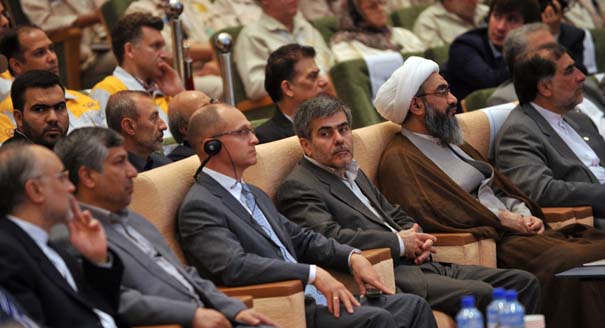The long-awaited International Atomic Energy Agency (IAEA) report on the implementation of Iran’s safeguards agreement was released on November 8. While the report, inscribed with “official use only” at the top, was obtained by nuclear policy bloggers and journalists with great interest, it was also received at the Russian Ministry of Foreign Affairs, although with notably less enthusiasm.
The ministry expressed “disillusionment and perplexity” that the report itself has turned into an additional point of contention in discussions over Iran’s nuclear program. Even before the report’s release, the ministry felt that it had become a topic of political gossip, rumors, and speculation, serving no benefit to those who must work to solve the problem. And the ministry quickly questioned the IAEA secretariat’s ability to keep confidential materials safe, something that Moscow deems critical for the agency to fulfill its objectives.
Moscow considers the release of the IAEA report particularly untimely. It feels that now is a unique opportunity to renew the P5+1 negotiations with Tehran over its nuclear program, and the report unnecessarily complicates and politicizes the situation. Indeed, the ministry stressed the importance of not injecting emotion into the discussion and avoiding “deliberately created” noise over new or rehashed information.
Just a day before the report’s release, President Medvedev warned against “dangerous rhetoric” when discussing talk of a possible Israeli military strike. Going further, the ministry denounced those that would use the contents of the report in the “pursuit of other goals” and rely on “destructive logic” that Russia refuses to support.
While the ministry did not immediately delve into an analysis of the report due to the “sensitive nature” of the issue, it did not hesitate to call into question “allegations” of a Russian scientist involved in the possible military dimensions of Iran’s nuclear program. The ministry insisted that all necessary documents concerning the alleged scientist were handed over to the agency, and again used the occasion to question the ability of the IAEA secretariat to safeguard sensitive information, reiterating the importance of confidentiality in the agency’s work.
It is clear that Russia will not be quickly jumping on board any new round of sanctions. The Russian foreign ministry specifically cautioned against rushing to hasty conclusions based on “short-term considerations” and said it will take its time analyzing the report, but promised to clarify its reaction in the upcoming session of the IAEA Board of Governors.
While talk in the West is being ratcheted up concerning additional pressure on Iran, Russia continues to search for a diplomatic resolution to the standoff. Moscow is keen to avoid conflict in its backyard. As one Russian defense official noted to me about a week ago, Iran is a neighbor that is not easily exchanged for a new one; we must find a way to live together. With that said, we can expect Russia to use its position on the United Nations Security Council to put the brakes on tougher talk coming from the West.
Andrew Riedy is a visiting researcher at the Carnegie Moscow Center.
